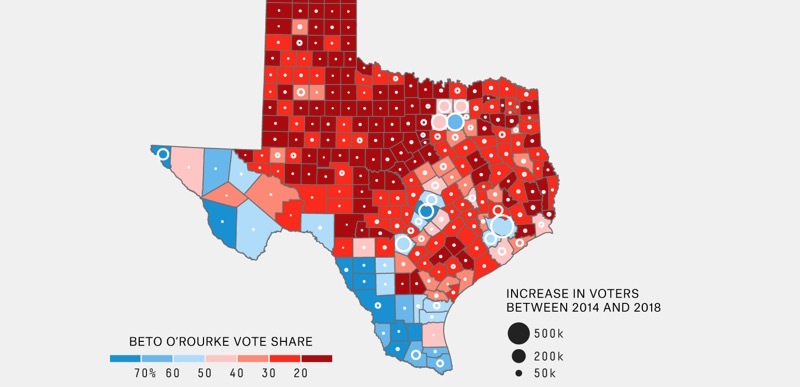The Secretary of State for Texas made an astounding claim about non-U.S. citizens registered to vote in the great state of Texas.
VOTER FRAUD ALERT: The @TXsecofstate discovered approx 95,000 individuals identified by DPS as non-U.S. citizens have a matching voter registration record in TX, approx 58,000 of whom have voted in TX elections. Any illegal vote deprives Americans of their voice.
— Ken Paxton (@KenPaxtonTX) January 25, 2019
Today, Texas SoS David Whitley issued an advisory regarding voter list maintenance activities in Texas:
— Texas Secretary of State (@TXsecofstate) January 25, 2019
"Integrity and efficiency of elections in Texas require accuracy of our state's voter rolls"
Read more here -> https://t.co/iaflxw8bgv
Here’s more from his statement:
Texas Secretary of State David Whitley today issued an advisory to county voter registrars regarding voter registration list maintenance activities, which include identifying any non-U.S. citizens registered to vote in the State of Texas. For the past year, the Texas Secretary of State’s office has worked closely with the Texas Department of Public Safety (DPS) to evaluate information regarding persons identified to not be citizens of the United States. This voter registration list maintenance activity is being conducted in accordance with federal and state law to ensure that only qualified voters – who must first and foremost be U.S. citizens – are registered to vote in Texas elections.
Now, it’s important to note that “non-U.S. citizens” includes, but is not limited to, illegal aliens. That also includes legal residents that are non-citizens, of which there are many. But in either case, they are not allowed to vote in Texas.
Through this evaluation, the Texas Secretary of State’s office discovered that a total of approximately 95,000 individuals identified by DPS as non-U.S. citizens have a matching voter registration record in Texas, approximately 58,000 of whom have voted in one or more Texas elections. Voting in an election in which the person knows he or she is not eligible to vote is a second-degree felony in the State of Texas. Upon receipt of this information, the Texas Secretary of State’s office immediately provided the data in its possession to the Texas Attorney General’s office, as the Secretary of State has no statutory enforcement authority to investigate or prosecute alleged illegal activity in connection with an election.
So… that’s a problem. It’s hard to tell how many of these are actually non-U.S. citizens, and how many are from technical inaccuracies. The SOS explains how they’ll contact these people and ask them to provide evidence that they are citizens:
If the person responds indicating he or she is not a U.S. citizen, or fails to respond to the Notice within 30 days, then the voter registration will be cancelled by the county voter registrar. County voter registrars have been provided with numerous training opportunities to ensure that list maintenance activities are conducted in accordance with state and federal law so as to not affect eligible voters.
We’ll keep an eye on developments in this, because if it’s anywhere near 90,000, it’s an alarming.
UPDATE:
The Texas Tribune says that the facts are being misrepresented by some in the media – here’s their explanation:
In an advisory released Friday afternoon, the office said it was flagging individuals who had provided the Texas Department of Public Safety with some form of documentation — including a work visa or a green card — that showed they were not a citizen when they were obtaining a driver’s license or an ID card. Among the individuals flagged, about 58,000 individuals cast a ballot in one or more elections from 1996 to 2018, the secretary of state’s office said.
It’s unclear exactly how many of those individuals are not actually U.S. citizens and whether that number will be available in the future. In its notice to counties, the secretary of state’s office said the names should be considered “WEAK” matches, using all capital letters for emphasis.
That means counties may now choose to investigate the eligibility of the individuals who were flagged, which would require them to send a notice asking for proof of citizenship within 30 days, or take no action. By law, the counties aren’t allowed to automatically revoke a voter’s registration without sending out such a notice.
As I pointed out elsewhere, the irregularities are over a span of elections, which means even if none of these people could prove they’re legal voters, it would go down to about 5,000 illegal votes per election in Texas.

